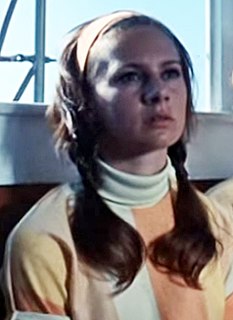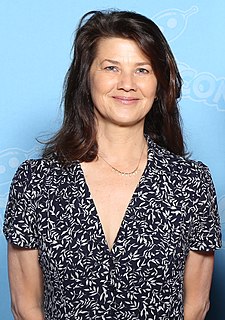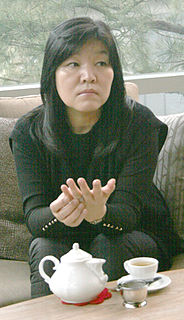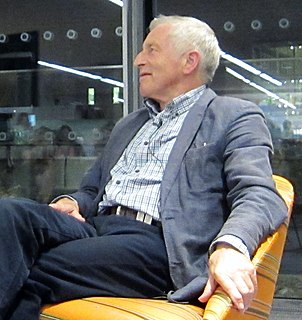A Quote by Francesca Annis
I'm often asked if I regret not going to Hollywood. I'm glad I didn't go, because if I had I wouldn't have my extended family, which is the fabric of my life. Only recently have I realised how special and unusual it is.
Related Quotes
The problem in Hollywood is that they try to become the only kind of cinema in the world, okay? The imposition everywhere of a unique culture, which is Hollywood culture, and a unique way of life, which is the American way of life. But Hollywood has forgotten that, in the past, what made Hollywood great and what made it go ahead was the fact that Hollywood was fed with, for example, Jewish directors coming from Germany or Austria and enriching Hollywood. In 15, 20 years, Hollywood became imperialistic. Cinema goes ahead when it is marriaged by other culture. Otherwise, it turns on itself.
No matter how you feel about your extended family or family gatherings you will be attending. This is because now the ultimate reason for attending family gatherings is for your children to have the time of their lives with their cousins. Little kids love their cousins. I’m not being cute or exaggerating here. Cousins are like celebrities for little kids. If little kids had a People magazine, cousins would be on the cover. Cousins are the barometers of how fun a family get-together will be. “Are the cousins going to be there? Fun!
I lived in Hollywood and, ironically, I didn't know you could just go out and get an agent and go on auditions and try and become an actor, I thought it was like a Masonic thing, like a blood line you had to belong to – until I was 13. Then I realised what you had to do. It is the one thing I know I want to do for the rest of my life.
Our most basic institution of family desperately needs help and support from the extended family and the public institutions that surround us. Brothers and sisters, aunts and uncles, grandparents and cousins can make a powerful difference in the lives of children. Remember that the expression of love and encouragement from an extended family member will often provide the right influence and help a child at a critical time.
Mom's eyes held yours for a moment. 'I don't like or dislike the kitchen. I cooked because I had to. I had to stay in the kitchen so you could all eat and go to school. How could you only do what you like? There are things you have to do whether you like it or not.' Mom's expression asked, What kind of question is that? And then she murmured, 'If you only do what you like, who's going to do what you don't like?
A willingness to vocalize feelings. How important it is to be willing to voice one's thoughts and feelings. Yes, how important it is to be able to converse on the level of each family member. Too often we are inclined to let family members assume how we feel toward them. Often wrong conclusions are reached. Very often we could have performed better had we known how family members felt about us and what they expected.
I had lost my sister recently, too, which meant that my whole family was gone. I was the baby of the family. There were five Sendaks and there were five Wild Things, and now there's only one Sendak, and he's about to bite the dust, too! Life, as I said before, was very difficult at that time and so it was natural that there would be a change in the look of things. Also, I was very impressed with my own strength in doing this under the circumstances in which I was living.




































